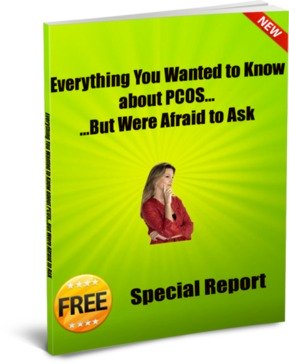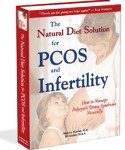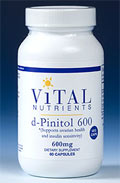Diet Controversy - Genetically Modified Foods
A recent "Impossible Diet" article stirred up some comments and controversy.
Thanks for Publishing this Article
"Thank you so much for publishing the impossible diet article. I just wanted to reach out and let you all know that I have been doing this impossible diet for six months successfully now.
I have stayed away from all wheat, diary, legumes, sugar, and alcohol also known as the Paleo diet.
I was diagnosed with PCOS four years ago and ever since have found it difficult to regulate my weight, suffering with systemic inflammation, depression, reaction to most foods that made me insulin resistant and barely menstruating.
Through the discovery of CrossFit and eating Paleo I have since gone from 278 to 215 in six months. I have had 4 periods in the past six months when prior to Paleo, I would maybe have 4 a year, no longer on anti-depression medicine, regulating symptoms of systemic inflammation and insulin resistance.
All with the help of eating this Paleo lifestyle and working out doing CrossFit 5 times a week.
I'm sure your book has a lot of commonalities with Paleo, but I would encourage research on Paleo and PCOS. It has worked successfully for me and for the first time in a long time I am optimistic about my health and my future.
Thanks so much for the newsletter and all the great information you all publish. It has helped immensely through my journey with PCOS."
Kindest Regards, Valerie A.
PCOS editor's reply: Thanks for sharing your amazing story! Congrats on your success so far! Our PCOS diet is very similar to a Paleo diet, nearly identical I'd say.
By the way, would it be OK with you if I share your story? I think others would be encouraged by your success.
Answer: Anytime! I figured sharing because this stuff really does works. It is always emphasized to focus on your diet and exercise with PCOS. When you are putting in 110% and you work hard, you get results!
I really and truly believe in the quote by Hippocrates, "Let food by thy medicine and medicine be thy food."
GMO Foods Article Rebutted
Another reader of the article was more critical.
"As someone with PCOS who works in agricultural research I am very, very disappointed to see you citing the recent study on rats and roundup ready corn as a reason not to eat GM foods.
However, since rodents have shorter lifespans than humans, could research on rodents fed GMO foods provide any clues?
Firstly, the study is badly done with very small sample numbers and dodgy statistics, secondly, as someone who has 8 female pet rats I can tell you that the majority of female rats have mammary growths and kidney function decline by the time they're 2, no matter what you feed them (yes, I read the paper, I'm not convinced), and thirdly, citing roundup ready GM as a reason not to eat ANY GM is an appalling generalization.
Roundup ready crops are environmentally unsound and have been used very badly and yes, they have caused misery to farmers, health scares, and environmental damage from overuse of herbicides.
But tarring all GM technology with the same brush is incredibly insulting to all the researchers who are looking to use GM to benefit the environment and improve global food security Roundup ready is the dinosaur of GM, the technology has moved on in leaps and bounds over the last 2 decades, as have the motivations driving it.
Here in the UK research is focused heavily on making crops resistant to pests, but not toxic to them (cf. Bt maize) in order to be able to reduce pesticide spraying, benefiting the environment and consumers. I can understand that in the context of what people eat in America yes, most of the GM food is roundup ready or Bt and yes, there may be health implications, but you insult the intelligence of your readership by making the generalization that all GM technology is the same."
PCOS Newsletter Editor's Comments
The person quoted above strongly disagreed with the article. Her main criticism was that I was unjustly condemning the genetic modification of all foods.
Well, she has a good point. It's very difficult to make valid, sweeping generalizations about (GMO) foods. Humans have been genetically modifying crops for a long time, resulting in vastly increased agricultural productivity. The result has been more food available for us to eat and a longer shelf life for foods.
On the other hand, I'm not aware of any clear evidence that genetic modification of foods will improve your health. For example, does the genetic modification of soy or corn reduce PCOS, diabetes or heart disease risk? Does a genetically modified tomato increase your lifespan? If GMO foods do not offer any additional health benefits, why should we eat them?
Secondly, are there any GMO foods that pose a potential health risk to humans? In other words, could they in any way contribute to chronic health disorders? To my mind, this is the unanswered question. We need much more research on this topic.
And hopefully, if genetically modified foods are to be our primary source of nutrition, scientists will develop foods that have a higher content of healthful nutrients and will be proven to aid human health.
Meanwhile, I remain cautious about mass-produced GMO foods. Perhaps one solution is to eat a wider variety of foods.
See Related PCOS Diet Articles
What's a Good Diet?
Why You Should Avoid Convenience Foods
Which Carbs Are Best?
The Benefits of Juicing
The Eat Right for Your Type Diet
You Need Antioxidants
Click here for a Natural PCOS Diet Plan e-book
PCOS Health Review
This free newsletter gives you original and immediately usable information to help you deal with PCOS.
Get the latest research, tips for improving your health, answers to questions, success stories, and more!
Your e-mail address is totally secure. We will never misuse your information.
Enter Your Email Above to Subscribe Today
and Get Your Questions Answered in this Free Special Report!





